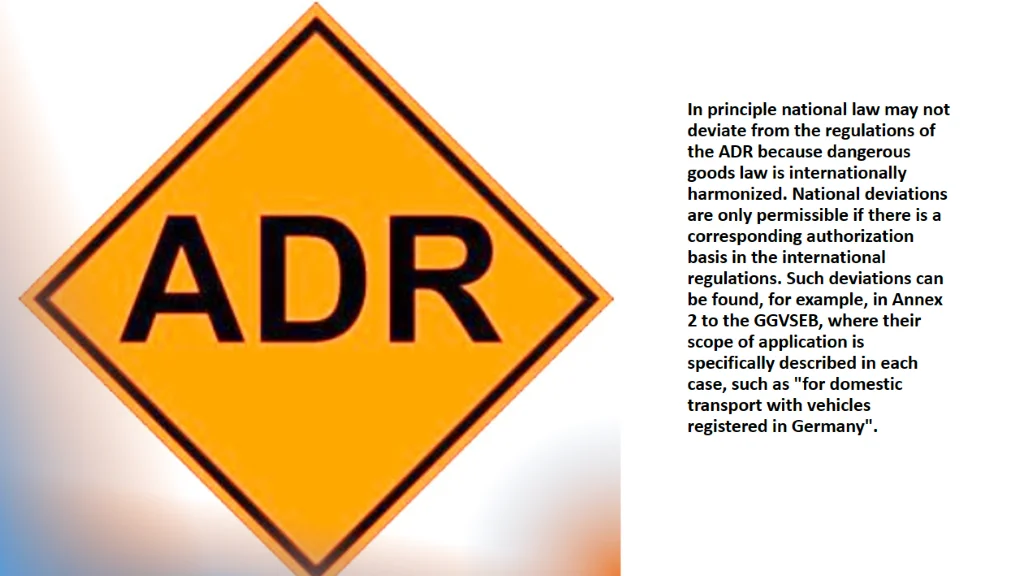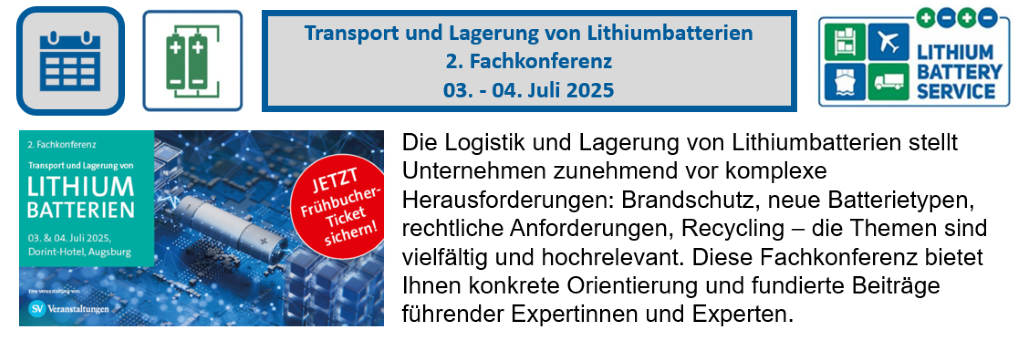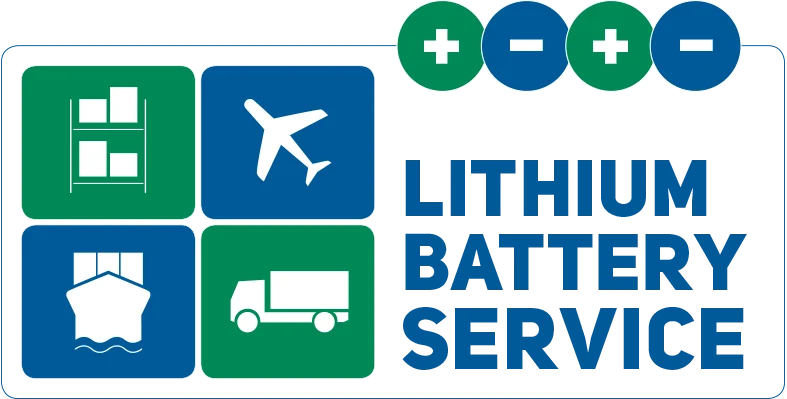Craftsmen Regulation: Training as per 1.3 ADR unnecessary
The question whether when using the craftsmen regulation a training according to 1.3 ADR is required was answered by Mr Depré with "No."

We are allowed to provide you with the origingal text of the email on this subject:
Von: Depre, Christian (StMB)
Gesendet: Dienstag, 8. November 2022 13:43
An:
Betreff: AW: Training according to 1.3 ADR - Craftsmen Regulation
Dear Mr XXX,
In principle national law may not deviate from the regulations of the ADR because dangerous goods law is
internationally harmonized. National deviations are only permissible if there is a corresponding authorization basis in
the international regulations. Such deviations can be found, for example, in Annex 2 to the GGVSEB, where their
scope of application is specifically described in each case, such as "for domestic transport with vehicles registered in
Germany".
According to the second paragraph of subsection 1.4.1.3 of the ADR, the contracting parties are permitted to
determine the obligations of the participants to a certain extent in deviation from the basic regulations in chapter 1.4.
This regulation has the following wording:
"Provided that the obligations set out in sections 1.4.2 and 1.4.3 are observed, a Party may, in its national legislation,
transfer the obligations incumbent on a named participant to one or more other participants if it considers that this will
not result in a reduction in safety. Such derogations shall be notified by the Party to the Secretariat of the United
Nations Economic Commission for Europe, which shall bring them to the attention of the other Parties."
No. 17.0 was added to the RSEB to clarify this for stakeholders.
The exemption in accordance with subsection 1.1.3.1 letter c of the ADR for transport by companies in connection
with their main activity (so-called "craftsmen regulation") leads to an exemption from the other provisions of the ADR
and thus also from the provisions for training persons in accordance with Chapter 1.3 if the conditions are met. There
is also no nationally deviating regulation on this in No. 2.1 letter c of Annex 2 to the GGVSEB. For this reason, the
obligation to train in accordance with § 27 Para. 5 of the GGVSEB is only relevant insofar as Chapter 1.3 of the ADR
is applied in accordance with its provisions, i.e. not in the case of exempted transport operations.
The federal government/state committee of experts on the transport of dangerous goods ("Bund/Länder-Fachausschuss") stated this at its meeting on 6/7 April 2017 under agenda item 8.6 as follows:
"In the case of exemption arrangements that fully exempt from ADR/RID/ADN, instruction in accordance with Chapter
1.3 is also not required. However, training is considered useful in order to ensure that the parties involved have the
necessary knowledge to be able to apply an exemption regulation in the first place. If the conditions of an exemption
regulation are not complied with, the transport must be carried out in accordance with the regulations. With regard to
a violation, however, it is always a case-by-case examination within the scope of the reproachability. The majority
does not consider a change in the law to be necessary.
I have taken the liberty of sending this in CC to the Hessian Ministry of Economics, Energy, Transport and Housing in
Wiesbaden, which is responsible for you.
Best regards
Christian Depre
Bauoberrat
Referat 66 - Technik der Straßenfahrzeuge und -bahnen, Seilbahnen, Gefahrgutbeförderung
Bayerisches Staatsministerium für Wohnen, Bau und Verkehr
Franz-Josef-Strauß-Ring 4, 80539 München
Telefon: +49 89 2192-3886
E-Mail: Christian.Depre@stmb.bayern.de
Internet: www.stmb.bayern.de
Karriere: www.ich-bau-bayern.de
Von:
Gesendet: Dienstag, 8. November 2022 09:10
An: Depre, Christian (StMB)
Betreff: Training according to 1.3 ADR - Craftsmen Regulation
Dear Mr Depre,
you wrote to Mr. Jürgen Werny in response to his inquiry regarding the subject matter: "The obligations in the
GGVSEB are always to be understood in connection with the corresponding mate- rial regulations according to
ADR/RID/ADN to which these obligations refer. The obligation to provide instruction in accordance with § 27 Para. 5
GGVSEB in conjunction with Chapter 1.3 ADR/RID/ADN therefore only applies if Chapter 1.3 is applied in accordance
with ADR/RID/ADN. As far as this is not the case in the context of exemptions, no obligation to instruct according to
the GGVSEB applies."
Where do you get this opinion from? From my point of view the GGVSEB is not to be seen in a dependence to the
ADR. Due to 17.0 of the RSEB (Regarding § 17 to 34a Obligations.
17.0 If obligations are specified in ADR/RID/ADN that are regulated differently in the GGVSEB, the obligations
according to the GGVSEB always apply in Germany).
I am of the opinion that instruction of persons involved in the transport must always take place. Also in the
interpretation of the law, I can only come to the conclusion that the legislator cannot have intended that the transport
of dangerous goods may be carried out by "unaware persons". These must also have the knowledge to implement
the non-exempt regulations.
Looking forward to receiving your answer!
Best regards
XXX
More blog posts
Latest newsblog posts

Unterschiedliche Formulierungen in Regelwerken
September 30, 2025
Newsletter
Der Produktionsprozess für Lithium-Zellen und -Batterien muss, wenn diese transportiert werden sollen, einem Qualitätsmanagementprogramm (QM-Programm) unterliegen.

Weiterbildungstermine Oktober 2025
September 30, 2025
Dates
Diese Termine zur Weiterbildung können wir Ihnen anbieten:

Einstufung von Lithium-Altbatterien künftig als gefährlicher Abfall
September 29, 2025
Newsletter
Für Abfallerzeuger, -besitzer, Sammler und Beförderer ist dies von hoher Bedeutung:

38.3-Prüfberichte und die zutreffende Ausgabe des Handbuchs über Prüfungen und Kriterien
September 29, 2025
Newsletter
Immer wieder taucht die Frage auf, auf welche Ausgabe des Handbuchs über Prüfungen und Kriterien zu referenzieren sei.

Batteriepass und Batterieverordnung
September 25, 2025
Knowledge
Sie haben keine Ahnung, was es damit auf sich hat?

SV 188 (f) „Knopfzellen-Batterien“
September 25, 2025
Newsletter
Der Begriff „Knopfzellen-Batterie“, der z.B. in der SV 188 (f) auftaucht, führte bei uns im Team zu der Diskussion, ob dies auch für Batterien, die aus Knopfzellen bestehen, gelten würde.

Solid-State Battery Summit + Sodium-Ion Battery Conference
May 26, 2025
Dates
This year, the Solid-State Battery Summit will take place on August 12th and 13th in Chicago, IL, USA, as well as virtually. The Sodium-Ion Battery Conference will take place at the same time.

European seminar on the development of high-voltage batteries
May 23, 2025
Dates
The hands-on seminar focuses on the technology, design, prototype manufacturing and validation methodology of rechargeable EV batteries.

Lithiumbatterien im Seeverkehr
May 23, 2025
Dates
Die Fachkonferenz „Lithiumbatterien im Seeverkehr“ bringt am 26. Juni 2025 erneut Experten und Entscheider aus Reedereien, Versicherungen, Seespeditionen, Hafenfeuerwehren, Behörden und Umschlagsbetrieben zusammen.

Transport und Lagerung von Lithiumbatterien 2. Fachkonferenz 03. - 04. Juli 2025
May 23, 2025
Dates
Diese Fachkonferenz bietet Ihnen konkrete Orientierung und fundierte Beiträge führender Expertinnen und Experten.


